This article was co-authored by wikiHow staff writer, Amber Crain. Amber Crain has been a member of wikiHow’s writing staff for the last six years. She graduated from the University of Houston where she majored in Classical Studies and minored in Painting. Before coming to wikiHow, she worked in a variety of industries including marketing, education, and music journalism. She's been a radio DJ for 10+ years and currently DJs a biweekly music program on the award-winning internet radio station DKFM. Her work at wikiHow supports her lifelong passion for learning and her belief that knowledge belongs to anyone who desires to seek it.
This article has been viewed 22,890 times.
Learn more...
Sweatbands absorb sweat to help you stay cool and dry when you're exercising or playing sports like basketball. The most common kinds are wrist sweatbands and headbands. Wrist sweatbands can prevent mishaps caused by slick hands and headbands will soak up sweat before it can drip into your eyes. Sweatbands also come in tons of colors and styles, so you can look cool and stay cool at the same time! If you're not sure how to wear a sweatband (for exercise or as a fashion statement), check out the tips below!
Steps
Choosing a Sweatband Material
-
1Get 100% cotton terrycloth sweatbands to absorb the most sweat. Terrycloth material is made of cotton, which is super absorbent. It's very effective at soaking up all of the sweat that would otherwise drip onto your face and body. The downside of terrycloth is that it's not very breathable, so heat, dirt, and moisture won't be able to escape.[1]
- This can result in skin rashes, irritation, and acne under and around the sweatband.
- Terrycloth is probably the most common sweatband material on the market. If you sweat a lot, terrycloth is the best option for you.
- Wash these sweatbands every day or every other day since they absorb so much sweat. Typically, you can toss terrycloth sweatbands into the washing machine with your workout clothes and hang them to air-dry.
-
2Try moisture-wicking fabrics like polyester to increase ventilation. Unlike terrycloth, which absorbs moisture, polyester has a wicking ability that allows heat and moisture to be released through the fabric. Since it isn't completely absorbing the moisture, polyester will dry much faster than terrycloth. This quality also allows the skin underneath the sweatband to breathe.[2]
- Polyester is very durable and doesn't deteriorate as easily as terrycloth.
- If you sweat a lot, consider washing your sweatband after each workout. Otherwise, it's probably fine to wash it every few days. You can wash it in your washing machine unless the care tag specifies hand-washing.
Advertisement -
3Try a nylon sweatband for stretch and durability. Nylon is easy to stretch around your wrist or forehead and tends to hold up the best because of how strong it is. Nylon also doesn't trap dirt in its fibers, reducing the risk of skin irritation, and has moisture-wicking properties, although it's not quite as effective as polyester at wicking moisture.[3]
- If you want extra stretch, look for sweatbands made of nylon spandex blends.
- Wash nylon sweatbands several times per week, or after every workout if you tend to sweat a lot.
-
4Consider features like UV protection and odor control. High-performance sweatbands with UV protection tend to cost a little more, but if you work out outdoors, spending the extra money might be worth it. Anti-odor fabrics are a good choice if you work up a sweat in public and are worried about sweaty smells.
- Sweatbands with reflective logos are great for people who exercise outdoors at night.
- Look for sweatbands with silicone rubber grips if you want yours to stay put no matter how much you sweat.
Wearing Wrist Sweatbands
-
1Wear wrist sweatbands to keep sweat away from your hands. Wristbands are helpful if you play tennis, basketball, baseball, and any other sport that requires you to grip a handle or ball. Sweaty hands can compromise your performance, but a wrist sweatband will protect you from sweat-related mishaps.[4]
- Most tennis players feel that wristbands are essential to keeping a solid grip on their racquets.
-
2Wipe sweat off your brow and face with wrist sweatbands. Wristbands can keep sweat from pouring into your eyes and down your face. All you have to do is run the wristband over your forehead to quickly absorb moisture. This is very helpful if you're playing a sport or exercising and can't take a break to wipe your face with a towel.
- You could also wear a head sweatband to keep sweat from dripping into your eyes and face, but some people find wrist sweatbands to be more comfortable.
-
3Wear wrist sweatbands to protect your forearms from injury. Bumping a volleyball repeatedly with your bare skin exposed can start to sting pretty quickly. Other contact sports can also cause abrasions and bruises. The thick sweatband material can help protect the skin on your arms and soften blows.
-
4Make a fashion statement or show support with wrist sweatbands. Sweatbands are practical, but they can also be a fun accessory! They come in tons of colors and styles to choose from. You can also use them to support your favorite professional sports team by rocking their color or logo on your wristband.
- Choose a sweatband that is a complementary or a contrasting color to add a pop of color to your outfit.
- For example, if your work out clothes are purple, wear a sweatband in a similar purple shade to complement it. You could also pair purple clothes with yellow wristbands if you prefer contrasting colors.
Using Head Sweatbands
-
1Wear head sweatbands to keep sweat off of your face and out of your eyes. Position the sweatband between your forehead and hairline to catch sweat before it can fall into your face and eyes. This can be very helpful for people who play sports or exercise frequently, especially if your hands are otherwise occupied with a ball, racquet, or bat.
-
2Keep your bangs and hair out of your face with a head sweatband. When you're playing sports or exercising, it's imperative that your hair doesn't get in the way. Head sweatbands are super stretchy and can effectively hold back your hair and bangs so that you don't have to worry about it.
- Try a yoga sweatband, which is slightly wider than normal, for increased coverage. Plus, they come in tons of cool prints and colors to complement your workout clothes.[5]
-
3Avoid hairline acne by keeping your bangs off of your forehead. Constant contact between the hair and skin on your forehead can cause unfortunate breakouts. Head sweatbands can eliminate this problem for you easily.[6]
- Remove your head sweatband immediately after exercising and wash your face with a mild cleanser containing salicylic acid to minimize forehead breakouts.
-
4Support your favorite team or match your head sweatband to your clothes. Wearing a head sweatband in your favorite team's colors is an easy way to show support and keep your hair out of your face. Lots of head sweatbands have team logos and other decorative elements to make them more interesting.
- At the very least, coordinate your head sweatband to match your gym clothes to look put-together while you're working up a sweat!
References
- ↑ https://www.junkbrands.com/blogs/junk-life/115803524-16-super-smart-reasons-why-you-should-wear-a-headband
- ↑ https://www.sportsrec.com/sweatbands-made-7516074.html
- ↑ https://www.sportsrec.com/sweatbands-made-7516074.html
- ↑ https://www.suddora.com/blogs/read/why-do-tennis-players-wear-wristbands
- ↑ https://www.verywellfit.com/best-hairstyles-for-yoga-3566744
- ↑ https://www.allure.com/story/got-bangs-3-ways-to-avoid-unwanted-forehead-acne
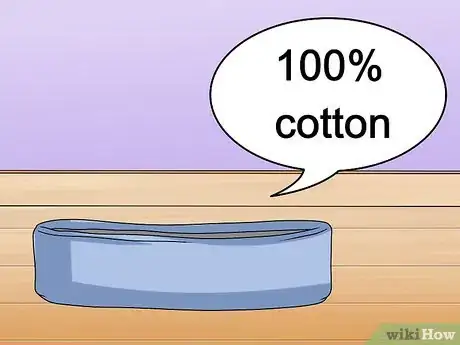

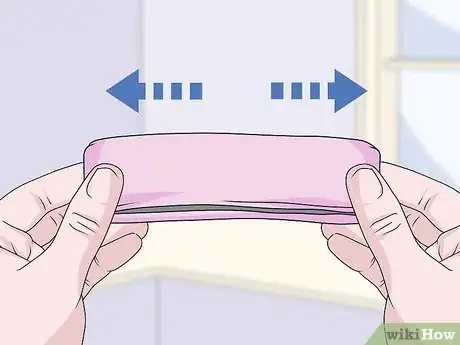
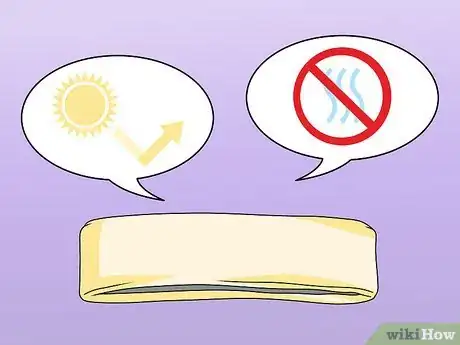
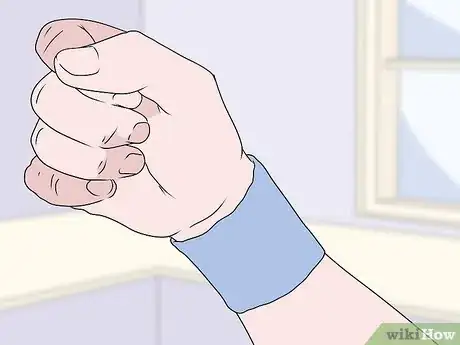
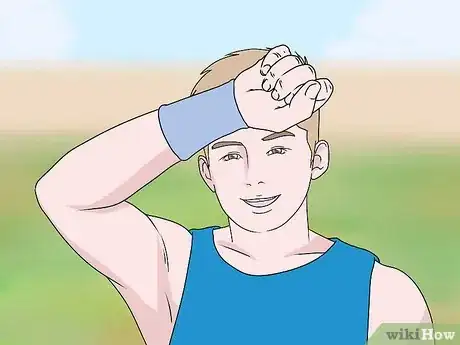
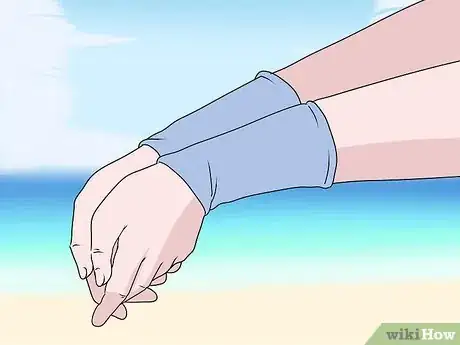
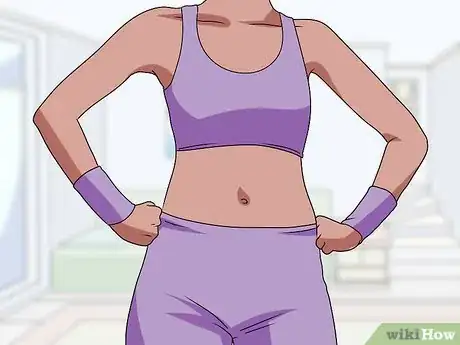
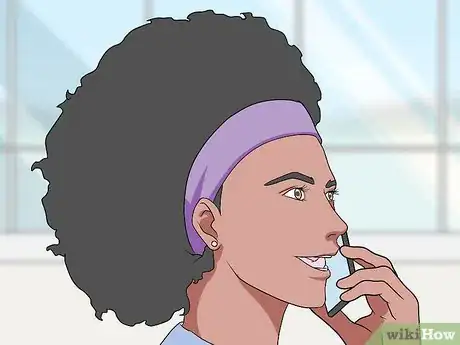
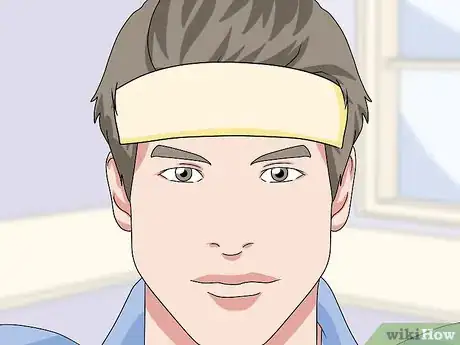
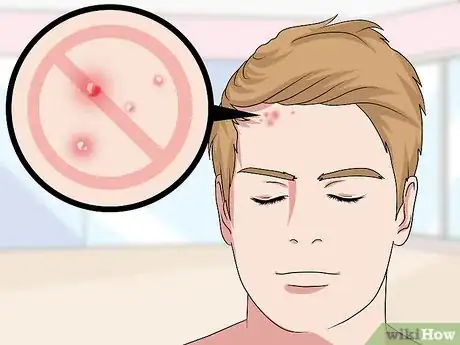
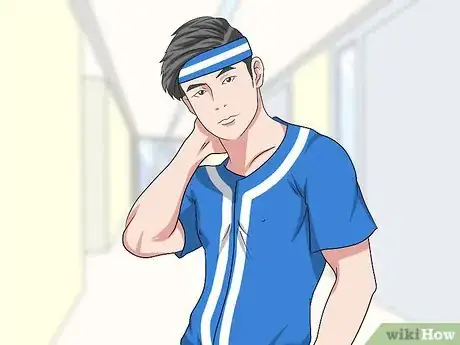
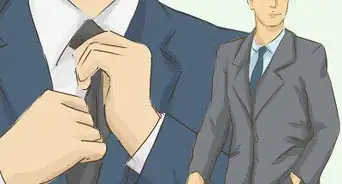
-Step-14.webp)


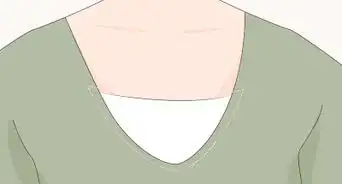


-Step-26-Version-2.webp)
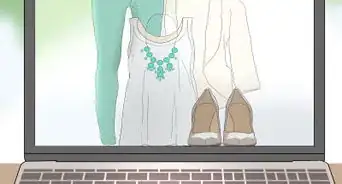













-Step-14.webp)




































